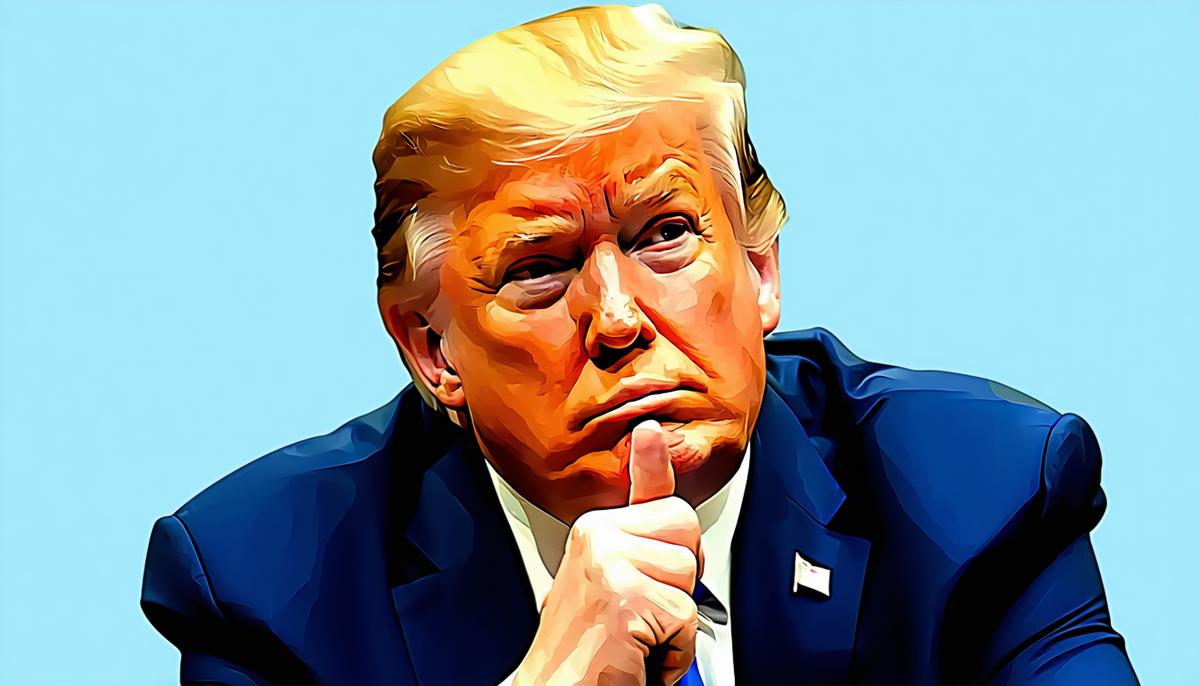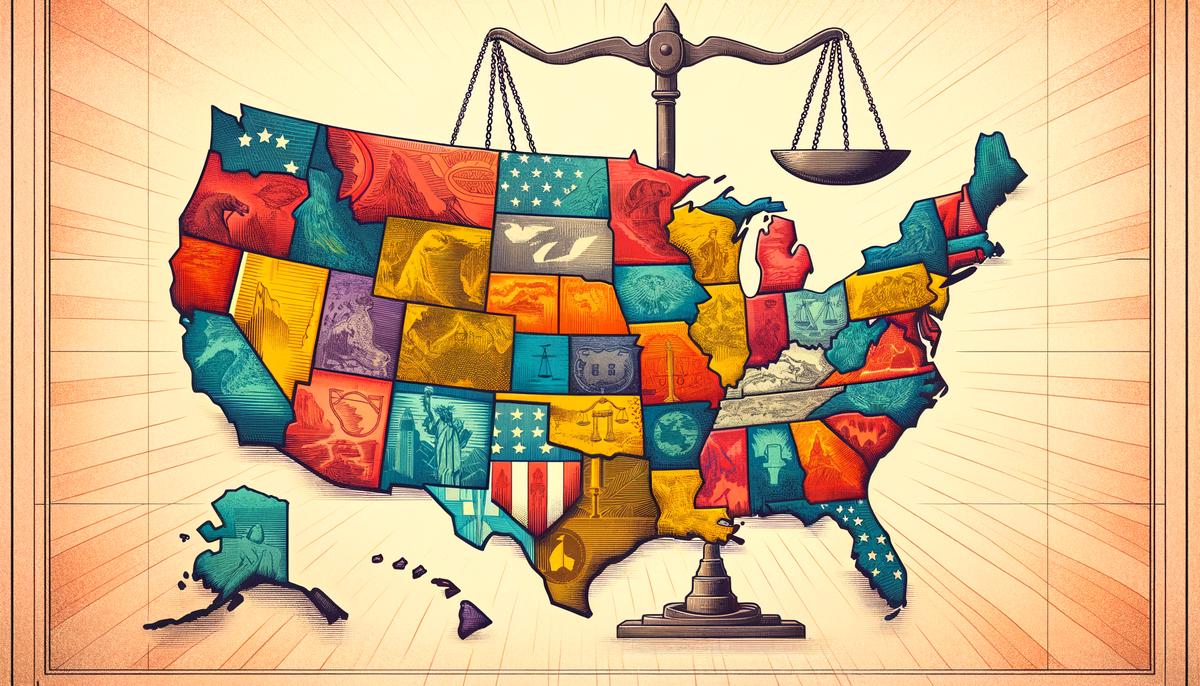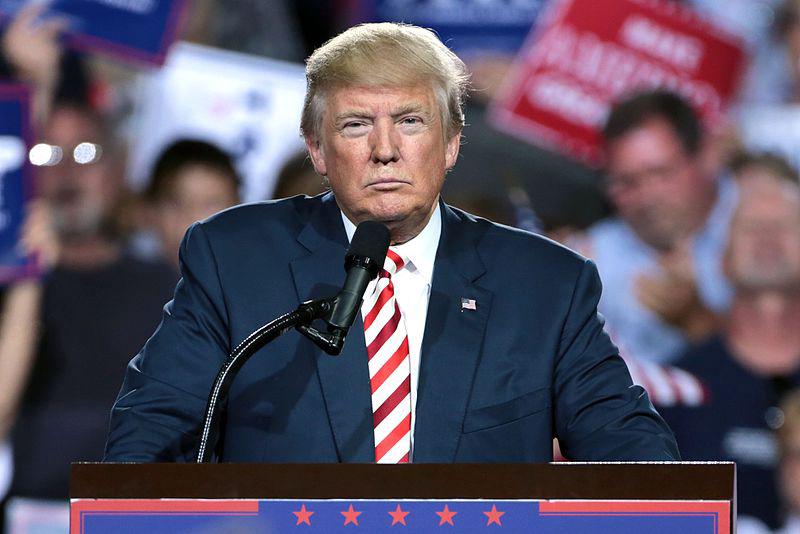Trump's Evolving Stances
Donald Trump's opinions on abortion have changed over time. Once "very pro-choice," he's now considered supporting different restrictions like a 16-week federal abortion ban. His journey has developed into a complicated story involving claims to leave the decision to states. Despite the apparent changes, Trump's ability to keep everyone guessing remains constant.
In recent years, Trump has adopted a new tune, suggesting in interviews that 15 weeks seems to be a popular timeframe. He's tossed out various ideas, sometimes supporting national bans, other times leaving it to states. Yet, despite the confusing signals, he's expressed reluctance toward federal mandates, consistently pointing to states to sort it out.
Trump's uncertain position on abortion restrictions mirrors the challenges of walking a political tightrope. On one hand, he's proudly proclaimed credit for appointing the justices who overturned Roe v. Wade. On the other, he's signaled some agreements with more lenient time limits, such as the 15-week mark. This has left him trying to appeal to both his conservative base and more moderate voters.
So where does that leave the discussion of a 16-week federal abortion ban? Well, as of now, it's another topic in Trump's policy mix. The former president's record on this issue shows not just shifting political winds but a level of unpredictability that's become his trademark. These varying stances illustrate the complexities of balancing personal beliefs and political strategy.

Impact of Roe v. Wade Overturning
Donald Trump's impact on the reversal of Roe v. Wade has been significant, flipping the script on abortion laws across the nation. His strategic nominations to the Supreme Court set in motion what many considered impossible. Trump's time in office was marked by the appointment of three Supreme Court justices, who played a pivotal role in dismantling Roe v. Wade. For his supporters, Trump became the champion of the pro-life movement.
With Roe v. Wade overturned, individual states can now craft their own legislation. Some states have embraced this newfound power, enacting tight restrictions. Others seem like they're still figuring out their approach. In places like Alabama and Texas, laws swiftly changed to reflect more stringent abortion restrictions.
The fallout from this landmark decision has been polarizing. While some states have applauded these changes, others have fought to maintain broader access to abortion rights. It's like watching a national tug-of-war, with both sides pulling with extraordinary passion and determination.
In the wake of Roe's reversal, America has witnessed an era of intense legal maneuvering, as states grapple with implementing these new laws. The consequences of Trump's influence are historical, setting the stage for a new chapter in how reproductive rights are governed. As states continue to find their path, it's clear that Trump's decision to appoint conservative justices has ignited a trailblazing movement that will resonate through political discourse for years to come.
Federal vs. State Abortion Policies
The debate over who should control abortion laws—federal or state governments—has become a lively spectacle in American politics. On one hand, there's the idea of a federal 16-week abortion ban, aiming to apply the same policies across the entire country. On the other, there's the notion of letting states make their own rules.
Donald Trump has played both sides of this debate. While at times he's hinted at supporting a uniform federal approach, he's also championed states' rights to make their own rules. This back-and-forth between federal oversight and state autonomy encapsulates a classic political dilemma.
Arguments for Federal vs. State Control:
- Federal Approach: Proponents argue for a consistent framework ensuring predictability and fairness nationwide.
- State-Determined Policies: Supporters believe states should have autonomy to craft laws reflecting their citizens' values and beliefs.
Trump has masterfully handled this political puzzle by keeping his own stance unclear. His call to hand the reins to states taps into a deep-seated belief in local governance. As the debate continues, the nation finds itself balancing between ensuring national uniformity and embracing the diversity of state-level policymaking.

Political Strategies and Reactions
In the lead-up to the 2024 elections, both parties are strategizing around abortion issues. For Republicans, Trump plays a central role with his dynamic approach. He's managed to keep the conversation lively, suggesting a 15-week national ban at times while deferring to individual states at others.
This approach reflects attempts to appease a diverse coalition—catering to the pro-life segment while leaving room for those advocating states' rights. Trump aims to broaden his appeal by avoiding a firm stance, allowing him to resonate with his base while potentially capturing moderate voters.
Democrats are leveraging the abortion discourse to their advantage as well. Biden's administration highlights state-level restrictions as examples of GOP overreach, portraying Democrats as defenders of reproductive rights. This move aims to energize their supporter base, particularly women and younger constituents who largely back abortion access.
Biden and his allies have seized upon state-specific restrictions as rallying cries, warning of potential nationwide implications if Republicans gain more power. Democrats argue for federal protections by framing these as issues of personal freedom and rights.
Both sides are carefully measuring public sentiment, aiming to align their abortion positions with voter expectations while avoiding pitfalls. It's a delicate balance, where one misstep could affect the alliances both parties seek to build or maintain.

Public Opinion and Social Impact
The discourse surrounding a proposed 16-week federal abortion ban has sparked intense debate. Polling data shows a varied landscape of public opinion. Most Americans believe some form of abortion should be permitted, especially in the early stages of pregnancy. Recent polls reveal that about half of U.S. adults are somewhat comfortable with a 15-week abortion limit, a number Trump has acknowledged.
The proposal of a 16-week threshold raises questions about rights, autonomy, and potential ripple effects. To some, it feels like a compromise that could placate voices on both sides of the debate. For others, it seems like federal overreach into what they believe should be state control.
In healthcare, the impact of such a ban might vary from state to state, raising concerns about personal autonomy and reproductive healthcare access. The suggestion of a 16-week cutoff has sparked dialogue on women's rights and potential burdens on healthcare providers.
"About 6 in 10 Americans think their state should generally allow a person to obtain a legal abortion if they don't want to be pregnant for any reason."
Beyond healthcare, this discussion touches on legal precedents and state autonomy. Many wonder if such a national law would withstand the legal challenges likely to arise, given the varied abortion laws currently existing across states.
Throughout this debate, Trump remains a central figure, navigating these tumultuous waters with his trademark style. He stands as both a key player and observer in this ongoing political discussion, attuned to the pulse of public opinion. It's another chapter in the ever-changing story of an America caught between preserving individual rights and shaping a collective moral compass.

In the end, Donald Trump's influence on abortion policy showcases his remarkable impact on American politics. His strategic decisions and unique approach have reshaped the landscape in ways that continue to resonate. As we look ahead, it's clear that his legacy will be felt for generations, as he remains a pivotal figure in shaping the nation's future.
- Associated Press. Trump says he will support national ban on abortions around 15 weeks of pregnancy. 2023.
- AP-NORC Center for Public Affairs Research. Public opinion poll on abortion rights. 2023.